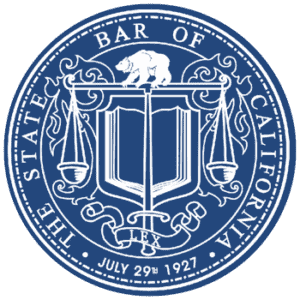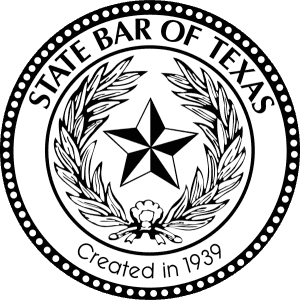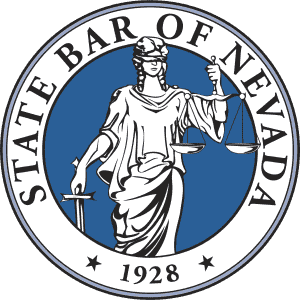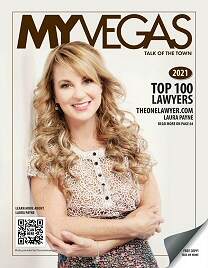TEN FACTS OF AMERICAN THANKSGIVING:
Estimated Reading Time: 9.7minutes
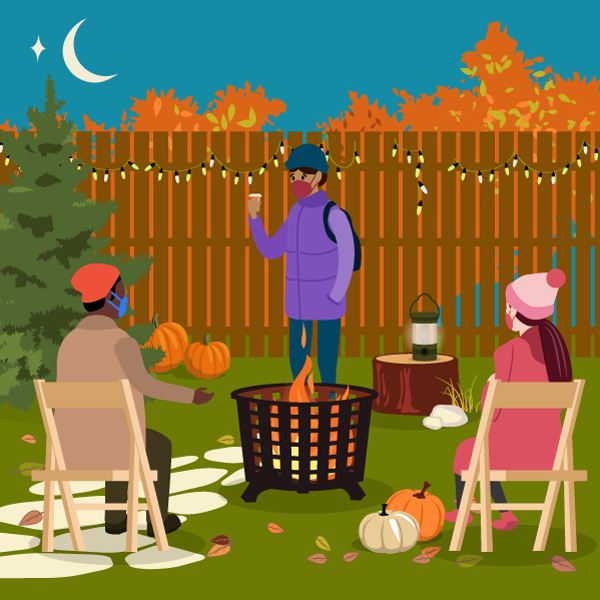
Thanksgiving is my favorite holiday of the year. I really believe it is the only four consecutive days of 365 when work really stops for family. What began as an Autumn celebration and feast hundreds of years ago has its own modern meaning to all of us. The holiday gives us an opportunity to reunite with family, enjoy our traditional dishes, express our gratitude and, of course, watch parades and football and shop online for Black Friday Sales. It is the kickoff to a hectic and joyous holiday season that we all look forward to all year. Have you ever wondered where the time-honored tradition of Thanksgiving originated in our law or the legal history of the holiday? Probably not, but as a legal blogger it has crossed my mind. In researching the issue, I have discovered some interesting laws regarding Thanksgiving. To Lighten Spirits before the reality of the holiday sets in, the following are ten funny but true facts about Thanksgiving in America:
TEN FACTS OF AMERICAN THANKSGIVING:
- There Is No Shopping on Thanksgiving Day in Some States–
Massachusetts, Maine, and Rhode Island
- Turkey Poo used for energy is required–. In North Carolina and Minnesota, they have mandated that utility plants use a small amount of turkey waste to generate some of their power due to the large turkey farming industry in these states
- Thanksgiving not always the fourth Thursday in Nov.-
In 1940 President Franklin Delano Roosevelt proclaimed Thanksgiving Day would be on the third Thursday in November in order to lengthen the shopping season for depression era retailers
- You can’t buy alcohol in some States on Thanksgiving in Kansas and Oklahoma you cannot buy alcohol on Sunday or a Holiday.
- You clean your house certain ways in New York City
If you live in New York City, bear in mind it is against the law to shake out a dust mop or a rug out of a window.
- You can’t drink wine from a teacup in Topeka In Topeka, Kansas it is against the law to serve wine in teacups in a restaurant.
- One Lucky Turkey is Pardoned In 1865 President Abraham Lincoln spared a Christmas turkey that his son took a liking to. However, it wasn’t until 100 years later that President John F Kennedy spared the first Thanksgiving turkey. The first president to issue a formal pardon to the turkey was George HW Bush during a ceremony in the White House rose garden in 1989. The tradition has been upheld for the past 29 years. It will be interesting to see if the current administration follows this tradition.
- A Lawyer Invented Canned Cranberries Attorney Marcus Lurran came up with the idea at the turn of the 20th century. He left his legal career to buy a cranberry bog
- Injuries Change the Law for Thanksgiving Parade In 1997, very high winds pushed the Cat in the Hat balloon into a lamppost. As a result, the falling pieces of the lamppost struck a parade-goer, which resulted in a tragic injury fracturing her skull and leaving her in a coma for a month. Following this injury, the balloon size regulations were enacted for the next year, which prohibited larger balloons such as the Cat in the Hat
- It Is Illegal to Use Dogs to Hunt Turkeys in Some States
In the state of Maine, no person may employ the use of a dog or dogs in any manner while hunting turkey except during the fall season.
On a more Serious Note, the following are the CDC recommendations for conducting Thanksgiving Gatherings Quoted from their Website:
Considerations for Hosting or Attending a Gathering
If you will be hosting a gathering during the holiday season that brings people who live in different households together, follow CDC tips for hosting gatherings. If you will be attending a gathering that someone else is hosting, follow CDC Considerations for Events and Gatherings. Below are some general considerations for hosting a gathering that brings together people from different households. Guests should be aware of these considerations and ask their host what mitigation measures will be in place during the gathering. Hosts should consider the following:
https://www.cdc.gov/coronavirus/2019-ncov/daily-life-coping/holidays.html
- Check the COVID-19 infection rates in areas where attendees live on state, local, territorial, or tribalhealth department websites. Based on the current status of the pandemic, consider if it is safe to hold or attend the gathering on the proposed date.
- Limit the number of attendees as much as possible to allow people from different households to remain at least 6 feetapart at all times. Guests should avoid direct contact, including handshakes and hugs, with others not from their household. https://www.cdc.gov/coronavirus/2019-ncov/prevent-getting-sick/social-distancing.html
- Host outdoor rather than indoor gatherings as much as possible. Even outdoors, require guests to wear masks when not eating or drinking.
- Avoid holding gatherings in crowded, poorly ventilated spaces with persons who are not in your household.
- Increase ventilation by opening windows and doors to the extent that is safe and feasible based on the weather, or by placing central air and heating on continuous circulation. For additional information on increasing ventilation, visit CDC’s information on Home. Winter weather can be cold, wet, and unpredictable. Inclement weather makes it difficult to increase ventilation by opening windows or to hold an event outdoors.
- If setting up outdoor seating under a pop-up open air tent, ensure guests are still seated with physical distancing in mind. Enclosed 4-wall tents will have less air circulation than open air tents. If outdoor temperature or weather forces you to put up the tent sidewalls, consider leaving one or more sides open or rolling up the bottom 12” of each sidewall to enhance ventilation while still providing a wind break.
- Require guests to wear masks. At gatherings that include persons of different households, everyone should always wear a maskthat covers both the mouth and nose, except when eating or drinking. It is also important to stay at least 6 feet away from people who are not in your household at all times.
- Encourage guests to avoid singing or shouting, especially indoors. Keep music levels down so people do not have to shout or speak loudly to be heard.
- Encourage attendees to washtheir hands often with soap and water for at least 20 seconds. If soap and water are not readily available, use hand sanitizer that contains at least 60% alcohol.
- Provide guests information about any COVID-19 safety guidelines and steps that will be in place at the gathering to prevent the spread of the virus.
- Provide and/or encourage attendees to bring supplies to help everyone to stay healthy. These include extra masks(do not share or swap with others), hand sanitizer that contains at least 60% alcohol, and tissues. Stock bathrooms with enough hand soap and single use towels.
- Limit contact with commonly touched surfaces or shared items such as serving utensils.
- Clean and disinfectcommonly touched surfaces and any shared items between use when feasible.
- Use touchless garbage cans if available. Use gloves when removing garbage bags or handling and disposing of trash. Wash hands after removing gloves.
- Plan ahead and ask guests to avoid contact with people outside of their households for 14 days before the gathering.
- Treat pets as you would other human family members – do not let pets interact with people outside the household.
The more of these prevention measures that you put in place, the safer your gathering will be. No one measure is enough to prevent the spread of COVID-19.
Food and drinks at small holiday gatherings
- Currently, there is no evidence to suggest that handling food or eating is associated with directly spreading COVID-19. It is possible that a person can get COVID-19 by touching a surface or object, including food, food packaging, or utensils that have the virus on it and then touching their own mouth, nose, or possibly their eyes. However, this is not thought to be the main way that the virus is spread. Remember, it is always important to follow food safety practicesto reduce the risk of illness from common foodborne germs.
- Encourage guests to bring food and drinks for themselves and for members of their own household only; avoid potluck-style gatherings.
- Wear a mask while preparing food for or serving food to others who don’t live in your household. https://www.cdc.gov/coronavirus/2019-ncov/prevent-getting-sick/diy-cloth-face-coverings.html
- All attendees should have a plan for where to store their maskwhile eating and drinking. Keep it in a dry, breathable bag (like a paper or mesh fabric bag) to keep it clean between uses.
- Limit people going in and out of the areas where food is being prepared or handled, such as in the kitchen or around the grill, if possible.
- Have one person who is wearing a mask serve all the food so that multiple people are not handling the serving utensils.
- Use single-use options or identify one person to serve sharable items, like salad dressings, food containers, plates and utensils, and condiments.
- Make sure everyone washes their handswith soap and water for 20 seconds before and after preparing, serving, and eating food and after taking trash out. Use hand sanitizer that contains at least 60% alcohol if soap and water are not available.https://www.cdc.gov/handwashing/when-how-handwashing.html
- Designate a space for guests to wash hands after handling or eating food.
- Limit crowding in areas where food is served by having one person dispense food individually to plates, always keeping a minimum of a 6-foot distance from the person whom they are serving. Avoid crowded buffet and drink stations. Change and launder linen items (e.g., seating covers, tablecloths, linen napkins) immediately following the event.
- Offer no-touch trash cans for guests to easily throw away food items.
- Wash dishes in the dishwasher or with hot soapy water immediately following the gathering.
From all of us at the TheOneLawyer.com, we wish you and your family a very happy holiday. In these difficult times, we hope you enjoy all of your unique, special holiday traditions in a safe and controlled environment. When traveling during the holidays, take a look at some of my past blogs regarding injuries that can occur on vacation and issues arising with rental cars. We hope that you travel safely.
If you or a loved one is injured call our office immediately. If you have been in any type of accident and have questions, please do not hesitate to contact our offices today. At my office, we are experienced in helping injured victims get the compensation they are entitled to. Insurance companies never have the best interest of the injured person at the top of their priorities. They want to pay as little on every claim as possible. Having worked for an insurance company as an attorney for 9 years before opening my boutique law firm specializing in helping injured people, I reviewed thousands of auto accident claims and policy provisions.
At the Law Offices of Laura Payne Hunt we are here to help you and your family in the event that accidents and tragedies occur. For any of your legal needs, do not hesitate to contact our offices. The Law Offices of Laura Payne Hunt is a boutique, family owned law firm in Henderson that specializes in helping injured people and the community with legal issues involving auto accidents, wrongful deaths, slip and falls, truck accidents, injuries to children, bicycle accidents, dog bites, and all types of injury claims. Please do not hesitate to call us anytime you have a legal question or you or a loved one has sustained an injury at 702-450-(HUNT) 4868 and text 24/7 at 702-600-0032.


